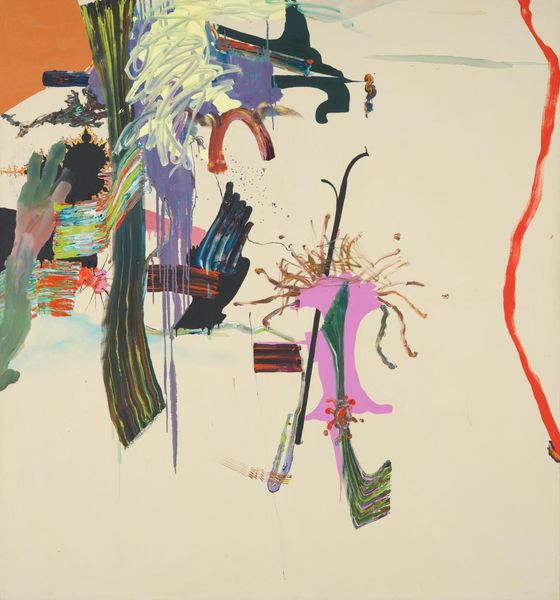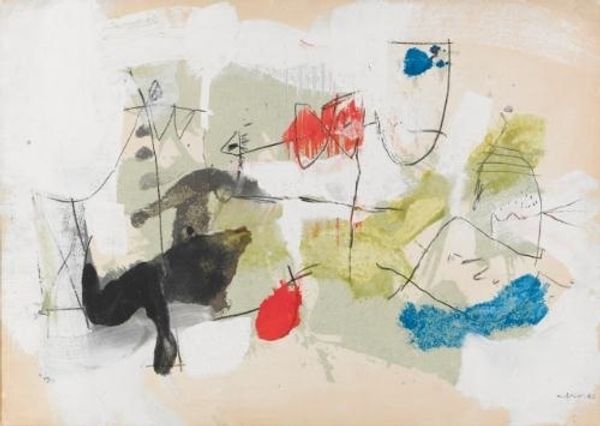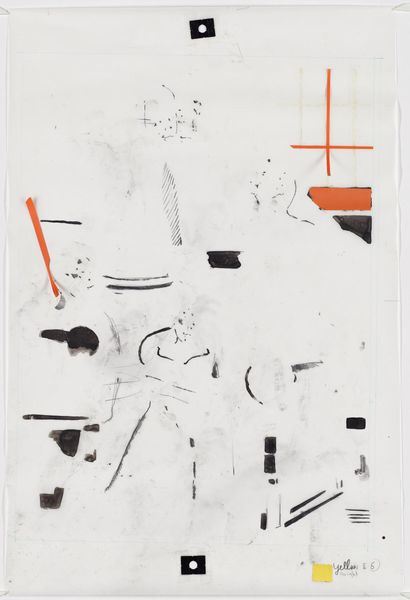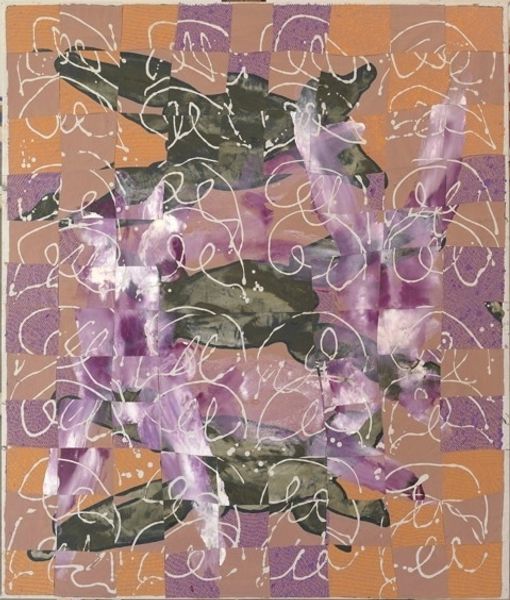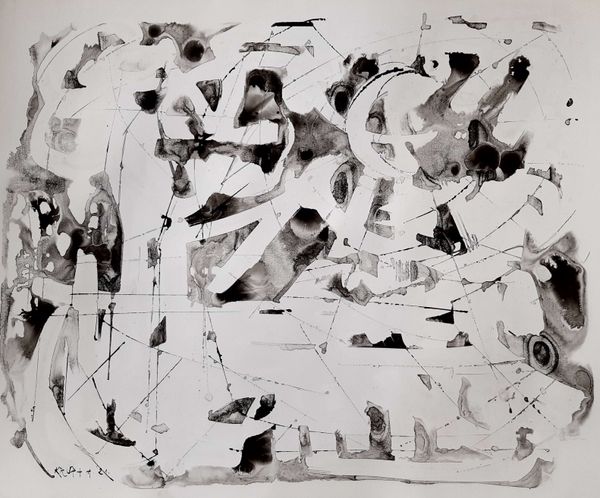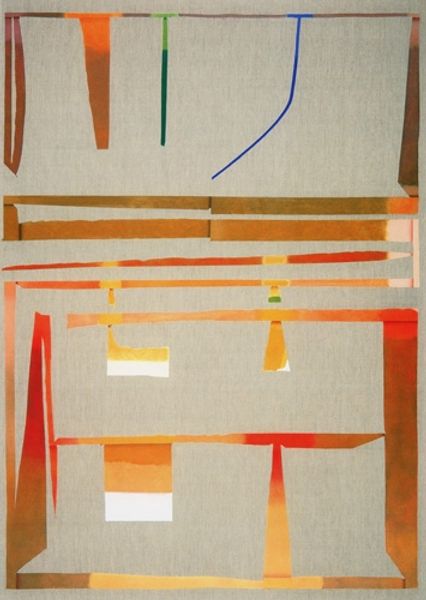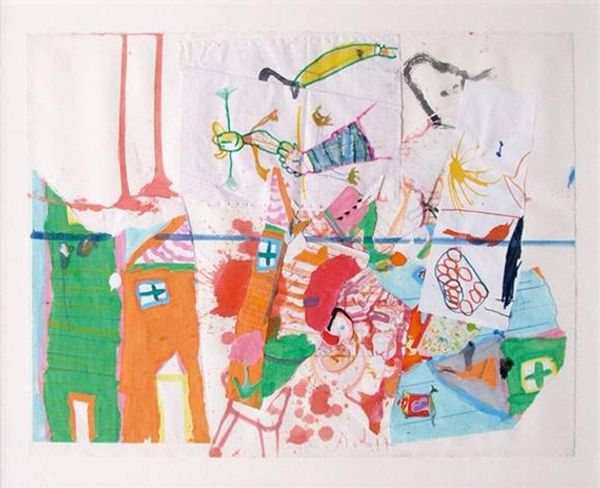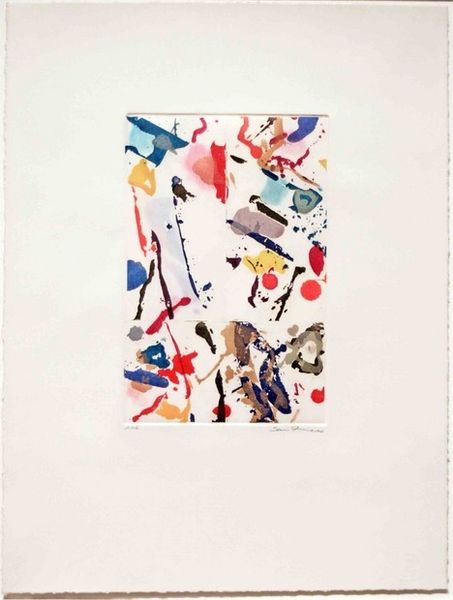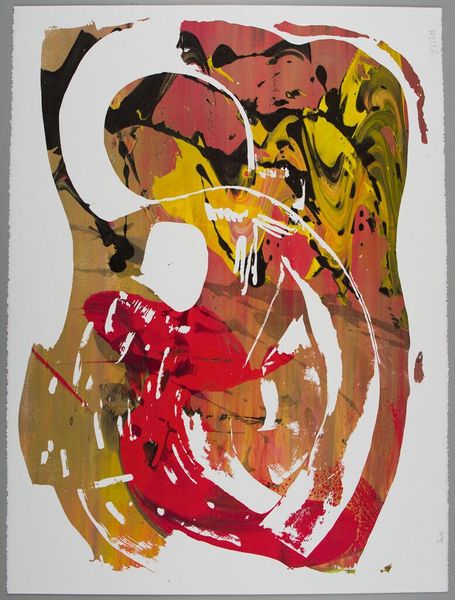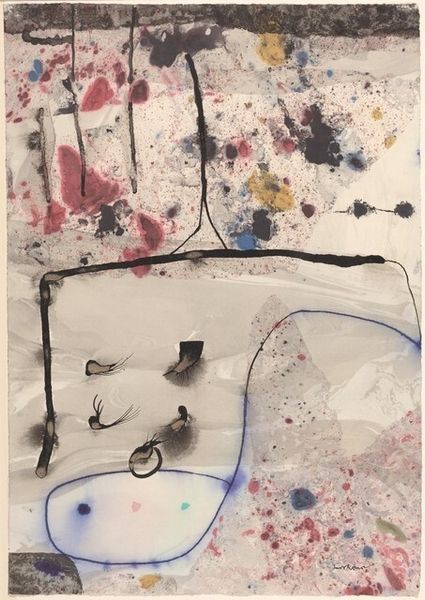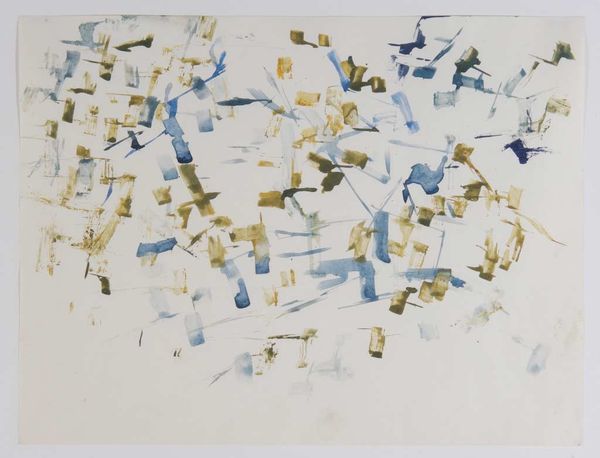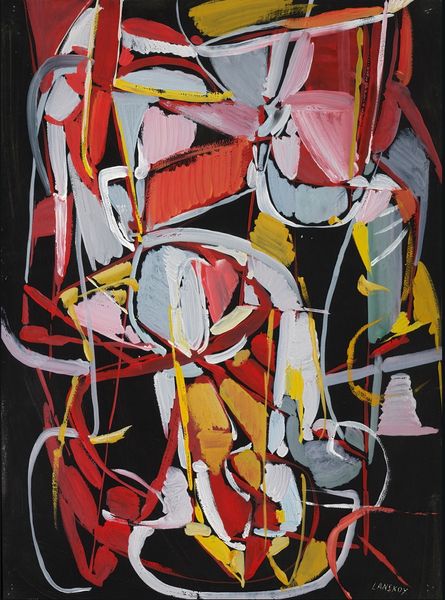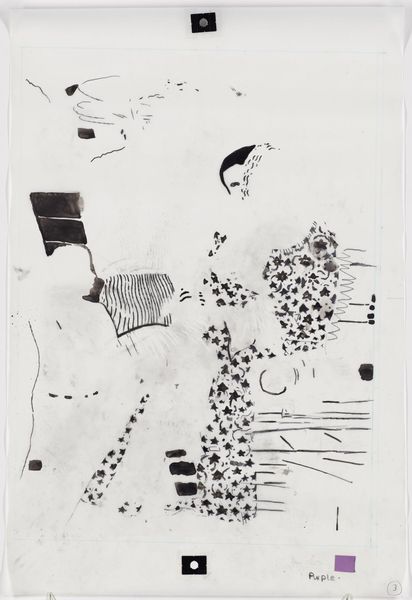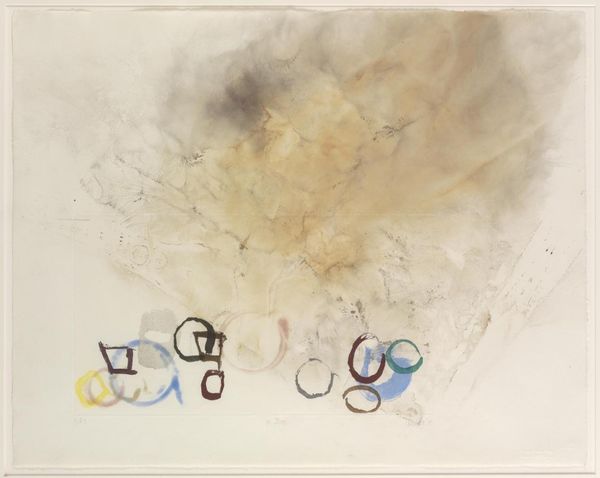
#
black-mountain-college
Copyright: John Cage,Fair Use
Curator: What strikes me immediately about John Cage's "75 Stones," created in 1989 using watercolor, is how playful yet ephemeral it feels. Like scattered thoughts on paper, wouldn’t you say? Editor: Absolutely. Cage, ever the provocateur, uses these deceptively simple watercolor washes to explore randomness and chance, key concepts within his broader artistic philosophy. He destabilizes traditional Western notions about mastery and purpose. Curator: Right, I can imagine him gleefully letting the water do its thing, creating these hazy edges and unpredictable shapes. Do you think it mirrors his musical compositions where he embraces silence and ambient sounds? Editor: Precisely. The 'stones' themselves—these geometric blobs—become a visual echo of his avant-garde musical scores, each holding space within the larger composition without a rigid structure. Think of the power dynamics implicit in any act of "framing." Cage bypasses these limitations. Curator: It's interesting to see how he allows the watercolor to bleed, almost like little accidents on the page. Are you saying these were carefully constructed accidents? A subversion perhaps? Editor: One could say. In my opinion, this technique directly engages with postmodern theory’s focus on deconstruction, questioning authority, and dismantling binaries. He’s actively undermining conventional art hierarchies in what seems like a simple medium. Curator: I almost wish there was a little more to "grab" onto. Do you think he worried about pushing the limits of abstraction to the point of losing an audience? Editor: Cage consistently challenged audience expectations throughout his career. I think it’s fascinating to examine the intentionality of this so-called "lack". This is particularly salient because there is a heavy emphasis on “finish” and perfection within Asian artistic practices related to ink and brush work. I see him challenging expectations there as well. Curator: What a brilliant way to reconsider Cage's work. I find it fascinating to realize how his musical experimentation seamlessly bled into his visual art! Editor: Exactly! These watercolor washes present us with the opportunity to see, hear, and challenge what "art" is intended to be. I think there is tremendous joy in being open to all possibilities.
Comments
No comments
Be the first to comment and join the conversation on the ultimate creative platform.
